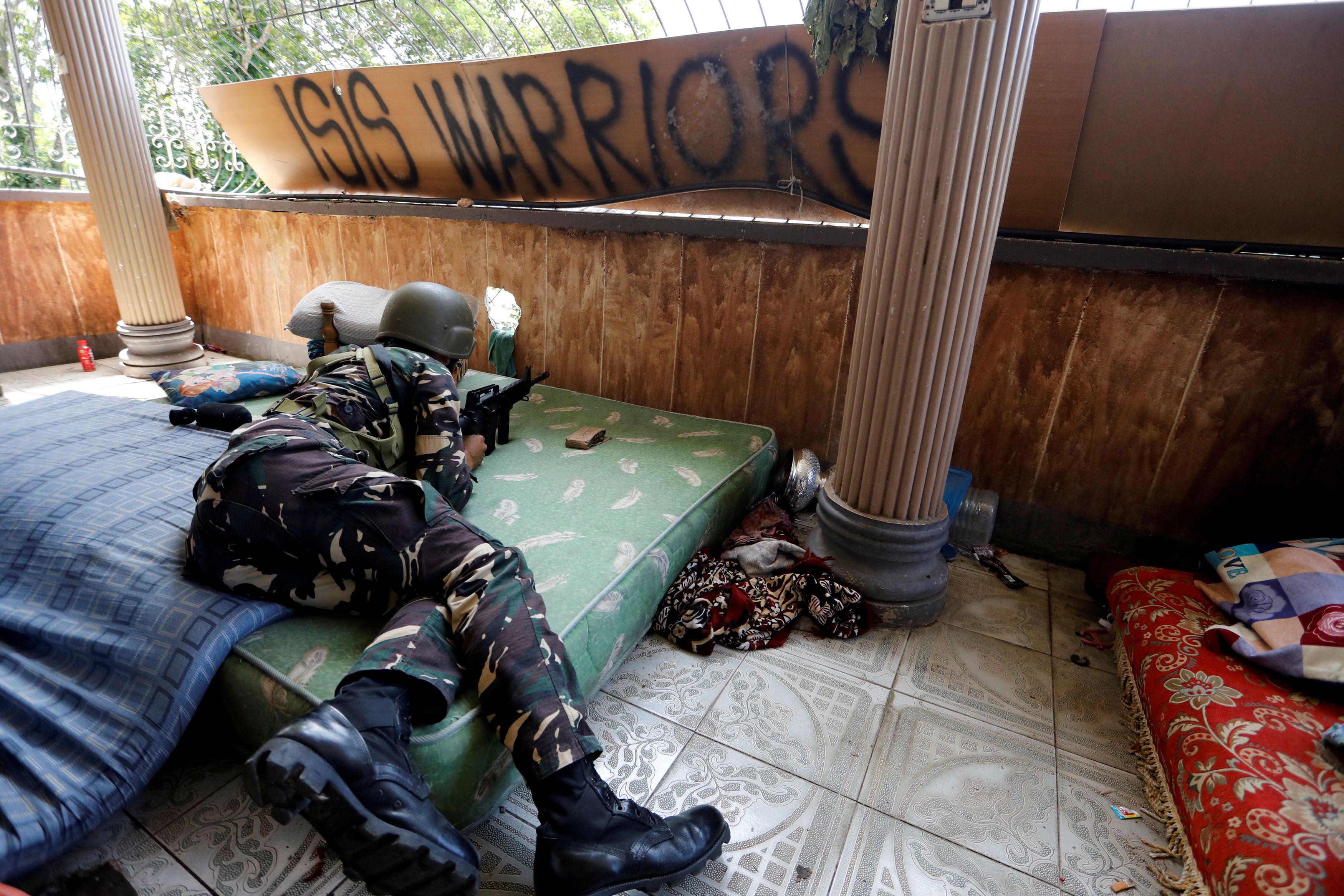After months of fighting in the southern parts of the Philippines, where a conflict with separatist Islamic insurgents deepened earlier this year, Philippine defense secretary Delfin Lorenzana and other officials said Monday (Oct. 16) that government forces had killed two key ISIL-linked militants: Isnilon Hapilon and Omar Maute.
Hapilon, who was from the southern Philippines, featured among the FBI’s most-wanted terrorists, and the US agency had offered a $5 million reward for information about him. His crimes, as listed by the FBI, included hostage-taking resulting in death and the murder of a US national outside the United States, and he had been indicted in his absence in Washington, DC. Hapilon was the deputy leader of the Abu Sayyaf group, according to the nonprofit research group Counter Extremism Project (CEP), and was involved in the kidnapping of 20 tourists from a resort on a western Philippine island in 2001; one of the hostages, an American, was beheaded.
According to the CEP, Hapilon headed a faction that in 2014 declared loyalty to the Middle East-based ISIL terror group. The CEP says that Syria-based ISIL leadership, which has been trying to build a caliphate in the Middle East, acknowledged Hapilon as its Southeast Asian leader in a January 2016 video.
The other militant killed, Maute, of the Maute Group, was also believed to have ISIL links.
The southern Philippine island of Mindanao is home to several Muslim militant groups. Islam was brought to the area centuries ago, and about 6% of Filipinos in the now largely Catholic country practice it. The killings by Philippine soldiers came as US-backed militias in Syria appeared to be on the verge of retaking in full the ISIL stronghold of Raqqa.


